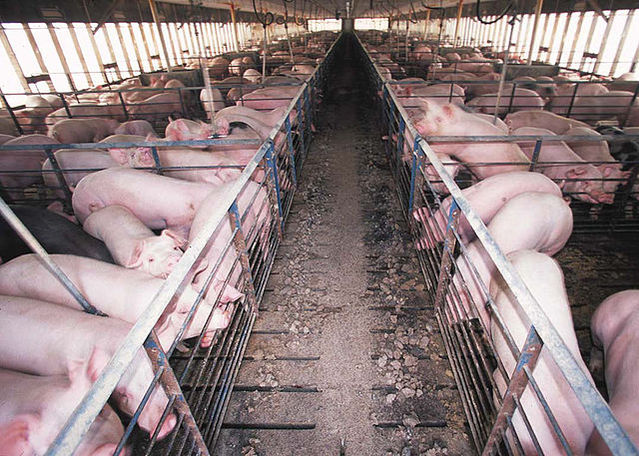Environment
Three Ways to Reduce Animal Agriculture
What are the most effective ways to reduce meat and dairy consumption?
Posted October 1, 2016

Thank you to Dr. Milena Esherick for this guest post.
Experts agree that there are enormous environmental consequences to our continued consumption of animal products. For instance the Green Mind has mentioned the connection between meat consumption and climate change many times, including here. And there are many other hidden costs of meat consumption including deforestation, contamination of waterways by animal feces and urine containing antibiotics and hormones fed to them, and so on.
If factory-farmed meat is a major contributor to climate change and other environmental problems, aside from all of the animal suffering it causes, what are the most effective strategies for reducing consumers’ consumption of meat, dairy, and eggs?
In their article Reducing Meat Consumption in Today’s Consumer Society, researchers Erik de Bakker and Hans Dagevos provide three pragmatic solutions for engaging consumers as allies in meat reduction efforts.[1] The three strategies differ according to the varying degree of a consumer’s desire to reduce consumption.
Sustainability by stealth
For people who are more passive—meaning less intentional, conscious, or deliberate—purchasers of food and not currently reducing their meat consumption, one solution is to make plant-based equivalents of animal products increasingly accessible. Consumers are likely to accept sustainable foods that are not noticeably different from the foods they currently eat.
Plant-based alternatives don’t even have to be marketed as such—salads, vegetable-based (e.g. avocado, cucumber) sushi, and various other alternatives, when present and delicious, have to power to entice eaters away from meat choices.
Moderate involvement
For consumers who may be more active and engaged in their food choices and working on reducing their meat consumption, the authors recommend introducing, supporting, and normalizing more meat-free and low-meat meals and increasing familiarity with flexitarian diets. Many people are actively seeking to reduce the meat in their diet for health, environmental, and animal well-being reasons.
These “flexitarians” form a substantial portion of the population and are likely to have a significant impact on shifting the food culture. Food programs that coax them further along this path with information about new alternatives, creative options in cafeterias, and so on can be an effective avenue of accelerating change. Sometimes these flexitarians just need a little more encouragement and more readily available delicious options. And their choices can be contagious.
Cultural change
Many consumers eat little to no meat and take into account environmental and animal welfare issues when making food choices. They are often the most open to messages that encourage people to give up meat entirely.
In a sense it may be “preaching to the choir” to help those already moderately or highly committed to eating less meat go even further. But in a society in which meat alternatives are not always available—in the grocery store, in cafeterias, and in restaurants—and in which seeking out plant-based diets can still seem eccentric (particularly in some parts of the country), providing moral support and viable options for those at the forefront of cultural change can be a huge help. It can cement the philosophical and practical into a coherent avenue for change.
Bringing Them Together
These three routes to change are not mutually exclusive. Some consumers may be passive purchasers of food on weekdays and more active and engaged meat reducers on weekends. Effective meat reduction approaches take into consideration consumers’ different pathways to change.
Effective approaches also acknowledge that consumers’ desires to reduce their meat consumption and eat sustainably is often blocked or limited by their shopping environment. “Whether and to what extent consumers really can become agents of sustainable change depends considerably on the opportunities and incentives offered or created by the infrastructure of consumption: to what extent is the sustainable choice the easy choice?,” the authors say. Our current food environment does not support sustainable, plant-based food choices.
To learn more about how The Good Food Institute is building a better food system where the most sustainable food choice is also the easy choice, visit our website.
Dr. Milena Esherick is Senior Advisor, The Good Food Institute. See her bio here.
Discover the main cause of environmental crisis: Invisible Nature
Follow me: Twitter or Facebook
Read more of my posts: The Green Mind
[1] de Bakker, E. & Dagevos, H. J Agric Environ Ethics (2012) 25: 877. doi:10.1007/s10806-011-9345-z


